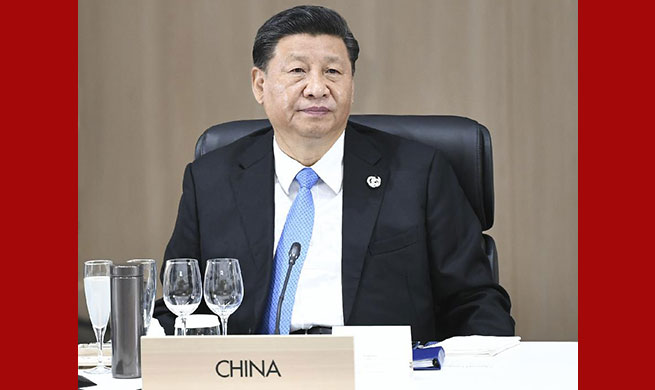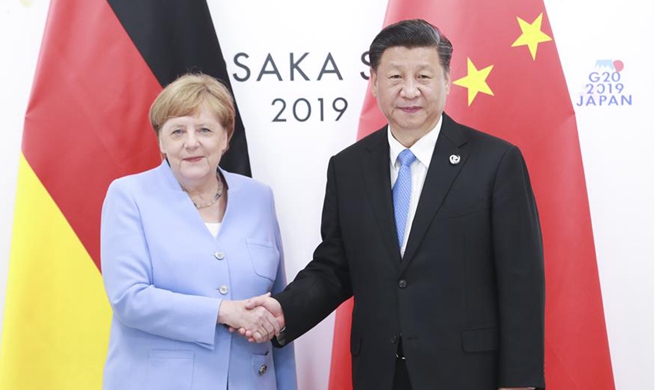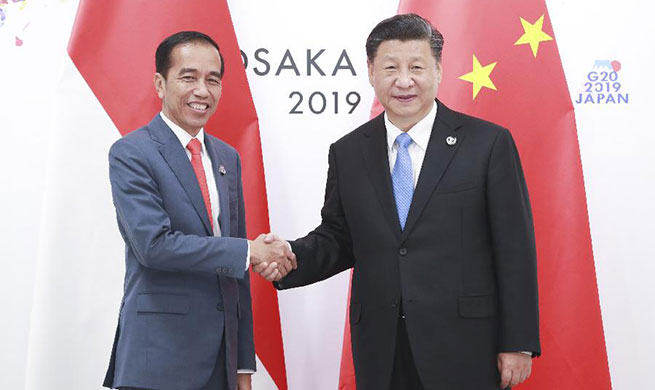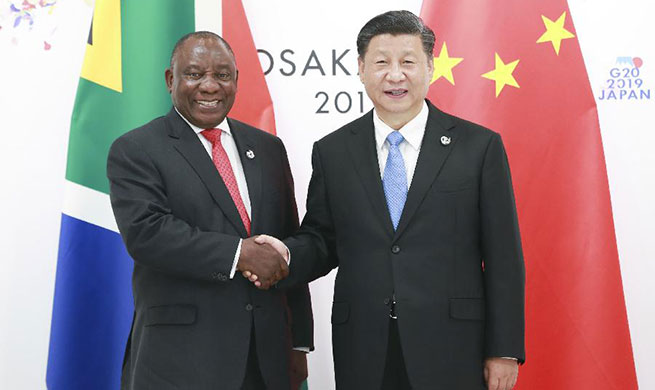BERLIN, June 28 (Xinhua) -- The German government is seeking to improve research into battery technology with 500 million euros (570 million U.S. dollars) and a new research factory, German Minster of Education and Research Anja Karliczek announced on Friday.
The government hopes to improve the conditions for battery cell production at home as cells for car batteries currently come exclusively from Asian manufacturers, according to the Ministry of Education and Research.
The battery cell research factory (FFB) would be set up and operated by the Fraunhofer Institute as a supporting institution, the ministry noted.
The government wanted the factory to "accelerate the transfer of new battery concepts and production processes into practice."
"The new research production battery cell will help Germany to play its part in the future field of batteries. We will not leave this field to others, but will face the competition," said Karliczek.
"Without high-performance batteries, mobility will not be able to develop further," the minister added.
The city of Muenster has been chosen as the site for the battery cell research factory, which is scheduled to go into operation in mid 2022
"A strategically important large-scale project such as the FFB can only be successful in a region that has established battery competencies at all qualification levels," said Fraunhofer President Reimund Neugebauer.
North Rhine-Westphalia's Minister President Armin Laschet described the selection of Muenster as the site of the FFB "a strong sign of the excellence of our science and business location."
North Rhine-Westphalia would become the "pioneer, driving force and impetus of electric mobility," said Laschet, whose state government has pledged 200 million euros for the factory.
Companies will have the opportunity to test their battery concepts for mass production suitability at the factory in Muenster.
Germany would need high-performance batteries to provide energy storage systems for electricity from renewable energies in the fight against climate change, Karliczek said. (one euro currently equals to 1.14 U.S. dollars)













